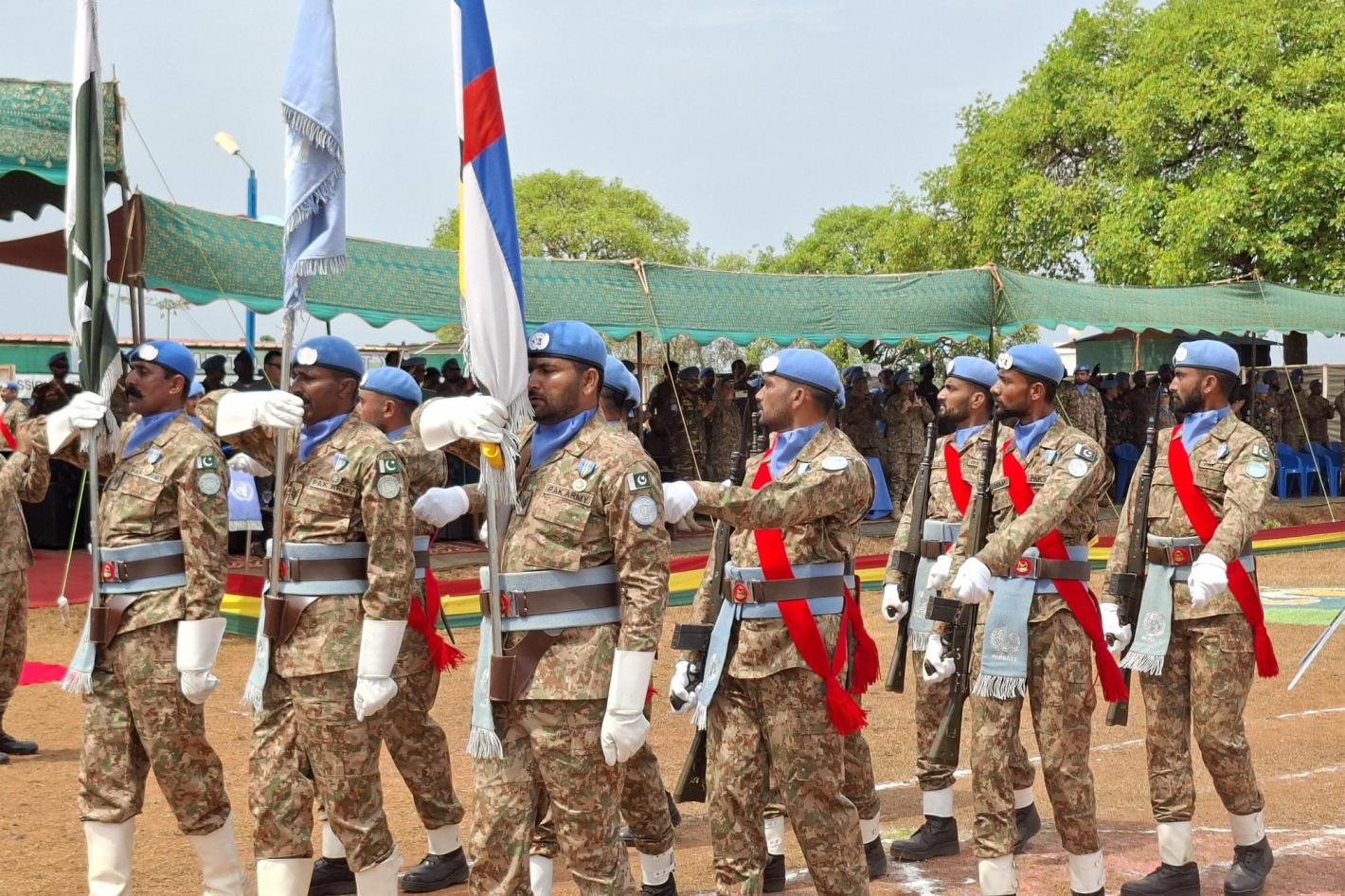Bangui, Central African Republic – Sexual violence is oftentimes exacerbated in conflict settings – and the Central African Republic is no exception. Prolonged armed conflict has coincided with a rise in sexual violence becoming one of the most frequently reported forms of gender-based violence (GBV) in the country.
In an effort to combat such practices among humanitarian workers, an inter-agency Prevention of Sexual Exploitation and Abuse Task Force (PSEA) organized a two-day workshop (30-31 October) for about 30 focal points working to eliminate sexual exploitation and abuse committed by humanitarian workers, including UN personnel as well as members of non-governmental and inter-governmental organizations in the Central African Republic.
The training – a joint initiative by the MINUSCA Conduct and Discipline Team, UNICEF, UNFPA and the International Rescue Committee (IRC) – seeks to enhance the capacity of focal points on the prevention, reinforcement and response to PSEA, including gender-based violence.
Sexual exploitation and abuse constitute one of the most serious violations of human rights and strengthening the capacity of PSEA focal points is imperative to combatting them.
The training defined sexual exploitation in the context of humanitarian work, examined the causes and consequences of sexual violence, identified potential perpetrators and victims, mechanisms for prevention and response including investigations, as well as specific interventions to protect women and children, who are particularly vulnerable to sexual abuse and exploitation, although boys and men fall victim too.
"The training has helped me to better understand the complexities of sexual violence and how to adapt local and international strategies on PSEA to meeting the gaps in service provision for survivors of sexual violence,” said Gender-Based Violence expert Kon Line Gaelle representing the NGO Intersource in the training.
She highlighted a whole range of obstacles she faces in her work to meet survivors’ needs – including victims lack of knowledge on both their rights and services provided as well as cultural barriers, such as stigmatization that prevents people from seeking help. In addition, vast geographical distances to beneficiaries, security concerns in parts of the country and lack of skilled personnel, especially in far-off locations, also affect prevention and response.
The training was also aimed at expanding the knowledge of humanitarian workers, national and international actors and other stakeholders on respecting and protecting the dignity of beneficiaries.
Results are key for Ngarrit Glodi, a Monitoring and Evaluation Expert for JUPEDEC, a youth NGO working for community development. “The training is an opportunity to cement our knowledge on approaches in assessing whether our work around sexual exploitation and abuse has a positive impact, especially with regard to responding to beneficiaries needs in the field,” he stated. He believes awareness raising on PSEA amongst communities, a key feature of the training, will make a significant difference.
From its side, MINUSCA works on a daily basis on staff member awareness on sexual abuse and exploitation issues through early warning training and sensitization, as well as corrective measures when they occur, either from civilians or military officers. ‘’Zero-tolerance’’ is the key policy guiding United Nations staff members, and the Conduct and Discipline Team makes sure it is fully implemented.






